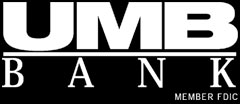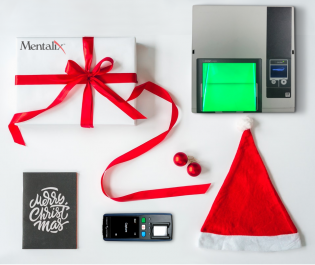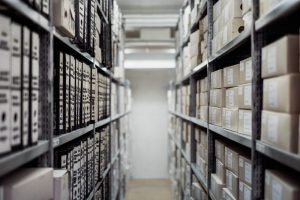Aton International Teams With Mentalix to Cut Time to Market for Fingerprint Products
Aton International, Inc. provides integration, design and consulting services for OEMs and business clients in several industries, including biometric imaging, physical access control and consumer software. Established in 1981, the Silicon Valley-based Aton International is located in Los Altos, California.
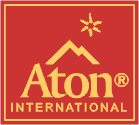
One of Aton International’s customers is Identix, a large biometrics solution provider. Identix makes fingerprint scan systems — including both live scan and ten-print card scan products.
In order to transmit fingerprint data to the Federal Bureau of Investigation (FBI) for comparison, both the software and the scanning device must pass certification tests issued by the FBI. Every time the software is updated or a different scanner model or operating system is used, certification testing must be performed again. Only those solutions that pass the rigorous testing procedures may be used to submit data for comparison against the FBI’s electronic database, the Integrated Automated Fingerprint Identification System (IAFIS).
Originally, Identix performed its own in-house development and went through the IAFIS certification testing process. However, for the Aton International consulting project, Identix needed to port its fingerprint scan systems from IBM OS/2 Warp to Microsoft NT and Windows 2000. In addition, the Hewlett-Packard desktop scanner model that had been IAFIS-certified was about to be discontinued by the manufacturer. As a result, IAFIS certification testing would have to be conducted again. Identix was also looking for a solution that would alleviate the possibility of having to re-certify its systems every time a scanner model was discontinued.
Charles Wilde, principal and founder of Aton International, says he looked at several options for answering his customer’s needs. Aton International considered doing the certification itself, but then discovered Mentalix’s Fingerprint Scan API Toolkit. Mentalix regularly submits its Toolkit software for IAFIS certification testing to keep pace with changing technology — such as new scanning devices — which means users do not have to worry about conducting time-consuming development work every time a scanner model is taken off the market. Instead, Toolkit customers can simply get a software upgrade.
“By using Mentalix’s solution we could solve two of our customer’s issues — time to market and scanner obsolescence,” Wilde says.
Aton International integrated Mentalix’s Toolkit into the Identix ten-print card scanning system. During that process, Wilde contacted a Mentalix product manager about correcting a problem that was unique to a particular scanning device.
“Mentalix did an outstanding job of working with the scanner manufacturer in this case,” Wilde states. “My credibility was on the line, since I had recommended Mentalix to my customer. I was impressed that: a) I could easily get in touch with Mentalix’s support team, b) the competence level was high, and c) the problem was resolved in a very short amount of time. We were pleased with the result, and I highly recommend Mentalix as a partner for systems integrators and developers.”
Carrollton Police Reduces Criminal ID Confirmation Turnaround from Months to Minutes
Fed Submit Sends Electronic Fingerprints to Texas DPS and FBI
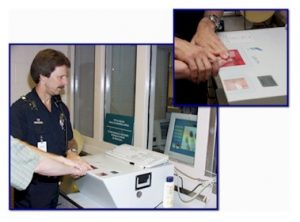 Mentalix, Inc. announces the successful deployment of its latest biometric fingerprint product, Fed Submit, at the Carrollton, Texas, police department — effectively reducing the department’s turnaround time on criminal fingerprint records sent to the Texas Department of Public Safety (DPS) and the Federal Bureau of Investigation (FBI) from a few months to a matter of minutes. The Carrollton PD’s first electronic transaction resulted in a response within a few minutes of submission, making it one of the only stations in Texas with the means to send encrypted fingerprint records over the Internet to the DPS.
Mentalix, Inc. announces the successful deployment of its latest biometric fingerprint product, Fed Submit, at the Carrollton, Texas, police department — effectively reducing the department’s turnaround time on criminal fingerprint records sent to the Texas Department of Public Safety (DPS) and the Federal Bureau of Investigation (FBI) from a few months to a matter of minutes. The Carrollton PD’s first electronic transaction resulted in a response within a few minutes of submission, making it one of the only stations in Texas with the means to send encrypted fingerprint records over the Internet to the DPS.
Fed Submit provides two affordable ways for the police to acquire electronic fingerprints: scan ten-print fingerprint cards with a flatbed scanner or roll live fingerprints with a live scan device. The software is one of the first solutions to allow the police to submit encrypted fingerprint records, along with associated subject biographical data and arrest information, to the Texas DPS electronically for identification comparisons against the state’s AFIS (Automated Fingerprint Identification System) database and to track the received responses. If a match is found, the results are sent back to the police department. If there is no “hit” on a record in the state AFIS, the DPS may then forward the record to the FBI for a check against the national IAFIS (Integrated Automated Fingerprint Identification System) database before the results are returned.
“We’ve been looking forward to getting a live scan system, and it has been a big plus for us to be able to try out the system and have our people get familiar with it before buying,” Monty Stanley, Assistant Chief at the Carrollton PD, says.
“These are expensive systems, and most companies don’t allow you to get the hands-on experience first. We’ve had a good relationship with Mentalix, and it’s been very beneficial for us to work with them.”
Previously, the Carrollton PD sent inked, ten-print cards to the Texas DPS by mail. This meant that results of the state’s AFIS comparison were usually not received until two to three months later. The Carrollton PD, in a Dallas suburb of 115,000, acts as a holding facility and usually transfers suspects 24 hours after they are apprehended. Because they did not receive confirmation of a suspect’s identity from the DPS within that time frame, the paperwork frequently had to be revised once the results arrived. By submitting its records with Fed Submit, the Carrollton PD now receives results much more quickly — as fast as within an hour of sending the initial transaction. An additional benefit of faster submission and response is that data-entry mistakes and fingerprint image issues can be resolved immediately, while it is still feasible to take the fingerprints again. Mentalix’s Fed Submit software detects image quality problems during acquisition and verifies certain data field requirements as the information is entered, so most errors can be handled prior to submission.
“We are very enthusiastic about providing a dual-use system for police departments,” Paul Siegert, Mentalix CEO and president, says. “Mentalix’s Fed Submit gives customers the choice of scanning cards, rolling prints on a live scanner or using both methods to acquire fingerprints. As a result, our solution is affordable for smaller police departments, and it also allows larger police departments to use a card scanner as a backup for their live scanner, so they do not have to spend money on 24/7 support contracts. Everyone saves.”
Siegert continues: “We work with agencies all over the country, but dealing with police departments in our own backyard has been very enlightening as far as finding out exactly what issues police officers confront with fingerprint systems on a day-to-day basis. It is a pleasure to provide the technology that makes law enforcement’s job easier, and working so closely with the Carrollton police has helped us to fine-tune our products both for them and for our other law enforcement customers.”
In addition to offering the flexibility of using card scanning, live scanning or a combination of the two, the software runs on Windows® and works with off-the-shelf hardware; these factors make Fed Submit a cost-effective solution for police departments. The Carrollton PD found that buying a comparable system with both card and live scan functionality that can communicate with the Texas DPS, along with the required equipment, would have cost tens of thousands of dollars more than Mentalix’s solution.
Landmark Chooses Mentalix for High-Volume Fingerprint Card Scans
Mapping Company Builds Economical Scanning System for 100,000 U.K. Fingerprint Cards
Since 1994, Landmark Information Group Ltd. has supplied digital mapping, property and environment risk information to four key sectors in the U.K.: legal, property, government, and environment. The company provides analysis, reports, and technological solutions. Having already supplied GIS services to the U.K. military police, Landmark won an imaging services contract which involved the scanning of 100,000 fingerprint cards and conversion of the images and data to build an image database. The contract mandated use of an FBI-certified scanning system, since FBI certification is a recognized standard for fingerprint equipment worldwide and ensures that fingerprint images will be of sufficient quality for identification.
The Landmark team contacted most of the scanning vendors on the FBI’s certification list. They considered high-speed scanners, but found, for the most part, that the cost was prohibitive and software flexibility was limited. The only vendor who proposed a solution that met all of Landmark’s needs for a reasonable cost was Mentalix. A key issue was the need to link the front and back sides of each card without having to attach additional data, which would increase both development time and file size (when scanning such a large number of cards in a short time, it was critical to ensure that the front and back images from the same card were stored together correctly). “Mentalix’s development team worked out a method that allowed us to tie the front and back sides of each form without attaching additional information,” Lokesh Shrivastav, a technical consultant at Landmark, said. “Mentalix’s Fingerprint Scan API Toolkit was the only product that could be customized to store the card’s front and back images together.”
In addition, Mentalix recommended the Epson Expression 1640XL scanner. Not only was this an affordable device, but since the 1640XL’s Automatic Document Feeder (ADF) was supported by Mentalix’s certified software, fingerprint cards could be scanned unattended. Mentalix suggested that Landmark could utilize multiple scanners, while — surprisingly — requiring less personnel costs than would be needed to operate a single high-speed scanner. In addition, the Epson’s ADF capability meant they could continue scanning beyond the normal workday hours — a solution that could be expanded or scaled down for future projects. Another advantage to this strategy was that using multiple devices eliminated the risk of halting the entire conversion operation due to a single hardware point of failure.
Mentalix’s certified API Toolkits were designed to allow developers such as Landmark to separate the scanning and post-processing tasks as needed. In addition to scanning, Mentalix’s software enables fingerprint image cropping, WSQ compression, and ANSI/NIST output.
Landmark used Mentalix’s API Toolkit to easily create a scanning solution that used the Epson Expression 1640XL scanners. Mentalix engineers also assisted Landmark with creating multiple templates to handle the various fingerprint card layouts (such as specialized cards used in Staffordshire) needed for this project. Just three people (two to scan, one manager) scanned 100,000 cards and converted the files in Landmark’s U.K. office. They determined the maximum number of cards, based on thickness, that could be efficiently handled by the scanners’ feeders. Landmark designed a grid on a closed LAN, with a server connected to eight scanning stations. Each scanner’s ADF could hold 50 cards, so with eight stations, overall ADF capacity totaled 400 cards. At closing time, the maximum number of cards were loaded into the ADFs, and scanning proceeded. After hours, the project manager logged in via VPN to check error messages and ensure that the scanning was progressing as expected.
“By using Mentalix’s multi-device approach and setting up our VPN access, we were able to significantly optimize our manpower,” Shrivastav said. “The software’s warning messages regarding the scan quality were very helpful. Based on the type of message, we were able to move the files into various categories — files that could be shipped immediately, and files that might require re-scanning and could be sent the next week. Image quality was important for us to know, and the Mentalix software highlights quality issues of even the slightest doubt.” Shrivastav pointed out that knowing which images to double-check saved a lot of time in coordinating the shipments to RMSI, Landmark’s partner in India. RMSI conducted custom post-processing on the images prior to delivering the files to the customer.
Shrivistav concluded: “The Mentalix software is customizable, and another good thing is that we can request features — which is generally not offered off-the-shelf. Usually, that doesn’t happen without a demand for more money from us. That is not the case with Mentalix, and their people are very helpful.”
UMB Bank Eliminates Background Check Delays with Mentalix’s Fed Submit
UMB Bank, n.a., headquartered in Kansas City, Mo., serves as the lead bank in a group of 165 banking centers that operate throughout Missouri, Illinois, Colorado, Kansas, Oklahoma and Nebraska.
UMB Bank processes approximately 25 to 30 fingerprint cards each week, as part of performing required background checks on potential employees. To expedite this process, UMB Bank utilizes Mentalix, Inc.’s Fed Submit system.
Before UMB Bank began using Fed Submit, the entire background check process could take as long as six to eight weeks. This delay was mainly due to the fact that the bank had to mail the ten-print cards by hand. Multiple agencies are involved in completing the background checks, so mailing the cards from one agency to the next, then returning the results along the same route, caused delays.
Once UMB Bank has taken an applicant’s fingerprints, the bank sends the data to the American Bankers Association (ABA), which processes fingerprint identification requests for its member banks. The ABA subsequently forwards the identification transactions to the Federal Bureau of Investigation (FBI) for comparison searches against the FBI’s automated fingerprint database. Banks are encouraged to run background checks on all job applicants for positions that require the employee to be bonded. Legally, an employee in a financial institution cannot be bonded if that person has prior convictions for financial crimes.
Under the previous system, UMB Bank had to hire and train a new employee while the background check was still underway. Hence, if a “hit” for disqualifying criminal convictions showed up in the fingerprint comparison, UMB had to release the employee and start a new search to fill the position. This situation — not to mention the potential security vulnerabilities — cost the bank time and money, due to the lengthy turnaround.
Mentalix’s Fed Submit addresses the speed issue by enabling users to scan and submit fingerprint cards electronically, bypassing the mailing steps. And because Fed Submit is certified for use not only with the FBI’s Integrated Automated Fingerprint Identification System (IAFIS) but also with the ABA’s system, it offers an ideal method for expediting background checks — specifically for banks.
Fed Submit is comprised of several Mentalix software components and may optionally include the necessary scan device and workstation. With the software, users can scan ten-print cards, enter the associated biographical data, compress the fingerprint images, transmit the records electronically for comparison, and process the results.
Mentalix pre-configures the Fed Submit system for customers. For UMB Bank, Mentalix staff also performed an on-site installation and sent test transactions to the ABA to ensure the system was up and running. “Support has been outstanding,” Terra Null, vice president/fraud investigator of the UMB corporate security department, says.
UMB Bank can now process background checks in a matter of days, rather than weeks. Secure electronic transactions are transmitted directly to the ABA, which forwards the data to the FBI. When the FBI completes the comparison, the results are sent back to the ABA, and then to UMB Bank.
“With Fed Submit, we get results in less than a week,” Null says. “We do realize a significant cost savings because we no longer have to hire new employees and spend the money training them only to later find that they can’t be bonded because of a prior arrest, which forces the bank to let them go.”


